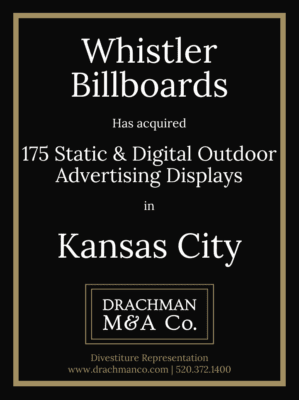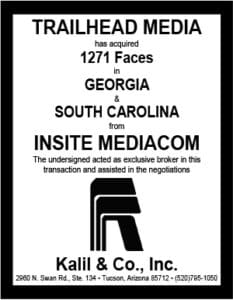
Retaining and growing your most valuable clients hinges on more than just delivering impressive results; it’s about delivering success on the customer’s terms. Central to this strategy is the cultivation of high-level client executive relationships, where value—defined from the client’s perspective—is at the heart of every interaction.
To foster and sustain these critical relationships, regular client-executive meetings are not just recommended; they are essential. However, these meetings must differ significantly from the typical encounters that many OOH teams are accustomed to.
Building Relationships Rooted in Genuine Value
Clients are savvy. They can quickly discern if your primary objective is to pad your commissions. If they sense that your motivations are self-serving, they may attend one meeting out of obligation, but they certainly won’t be returning for more. Instead, the focus must always be on the value you provide from the client’s perspective, both in the present and the future.
This is where the concept of the Quarterly Value Review (QVR) comes into play. These meetings are entirely client-focused, with an emphasis on the value you’ve delivered and the value you plan to deliver in the months ahead. The overarching theme is that the meeting is not about you or your offerings, but about the client’s needs, expectations, and satisfaction.
Why QVRs Matter
When you consistently deliver real value on the client’s terms and maintain an open dialogue about your progress, clients will look forward to seeing you every three months. These meetings are an opportunity to discuss what you and your team could and should be doing to better serve the client. While there is always a risk of exposing potential shortcomings, the benefits far outweigh the risks. After all, “You can’t fix a problem you don’t know you have.” It’s far better to identify and address issues early on than to discover them too late, after the client has already decided to take their business elsewhere.
QVRs also provide a platform for establishing and nurturing relationships with the client’s owners or senior executives. When issues arise—whether positive or negative—it’s always easier to navigate them with people you know. QVRs facilitate this familiarity, allowing you to build trust and rapport with the key decision-makers.
Structuring the QVR for Success
The success of a QVR hinges on its structure, which should focus on four key areas:
- Customer Satisfaction Factors: Start by asking a crucial question that too many OOH salespeople overlook: “What’s important to you in this relationship going forward, and how important is it?” Provide a list of factors such as understanding their business objectives, quality of deliverables, meeting deadlines, expense control, communication, responsiveness, foresight, knowledge transfer, professionalism, autonomy w/o client interaction, compliance, etc. Ask the client to identify the five most important factors and assign a percentage to each, reflecting their significance. These percentages should total 100%, providing a clear picture of the client’s priorities.
- Create a Service Scorecard: Develop key performance indicators (KPIs) based on the priority list your client has created. These KPIs will serve as a benchmark for evaluating your performance in each of the five satisfaction areas the client has identified.
- Impacts: Discuss potential impacts of predictable events in the upcoming 3, 6, 9, and 12 months. This includes identifying possible challenges/opportunities—whether related to the client, the industry, or the market—and developing action or contingency plans to address them. By anticipating challenges/opportunities and proactively planning for them, you position yourself as a strategic partner, rather than just a service provider.
- Strategic Innovation: This segment of the meeting is dedicated to brainstorming ideas that align with the client’s most important strategic objectives. These discussions often pave the way for new business opportunities, as both sides work together to explore innovative solutions that drive mutual success.
The Bottom Line: A Systematic Approach
The question every OOH leader should ask themselves is whether they have implemented a systematic approach for ongoing client dialogue. Are your salespeople engaging in meaningful, value-driven conversations with clients throughout the year, or are they simply “checking in” when it’s time for renewal? If you are happy with your current renewal rates, you might not feel the need to change. However, if there’s room for improvement, adopting a structured approach like the QVR could be the key to boosting your renewal rates and deepening client relationships.
By shifting your focus from closing the next deal to delivering consistent, client-defined value, you will enhance your renewal rates.
Need help with sales skills or coaching to take your out of home company to the next level. Learn more about OOH Sales Mastery at oohmastery.com or Contact Dan Nausley at dan.nausley@sandler.com, 423.702.5579.
Lisa & Dan Nausley and Reggie Piercy of Sandler Chattanooga have developed the OOH Sales Mastery Program after more than a decade of training/coaching thousands of OOH Operators across the country in sales, leadership, and executive coaching.
To receive a free morning newsletter with each day’s Billboard insider articles email info@billboardinsider.com with the word “Subscribe” in the title. Our newsletter is free and we don’t sell our subscriber list.
Paid Advertisement

















